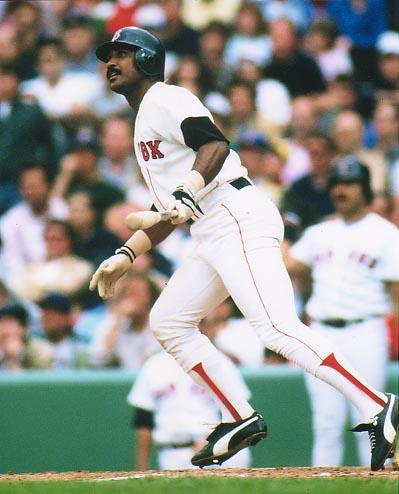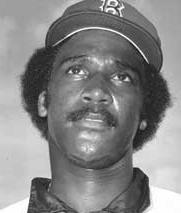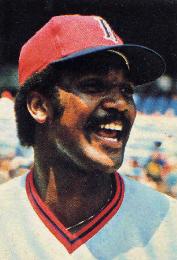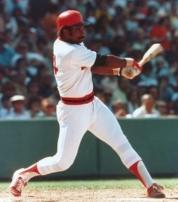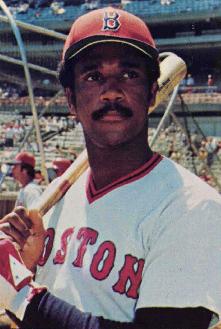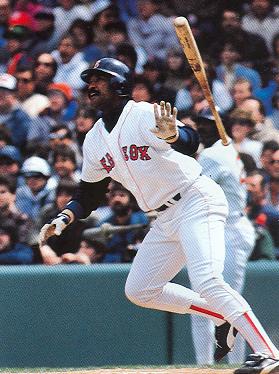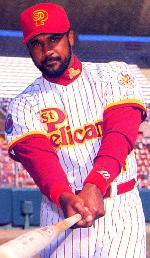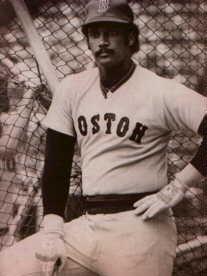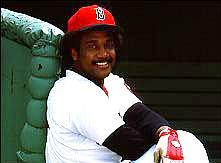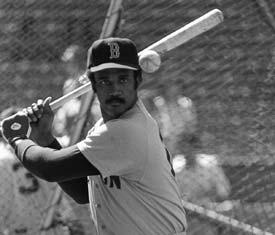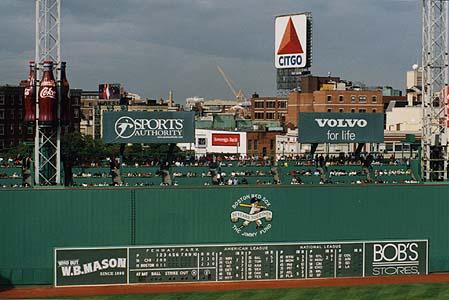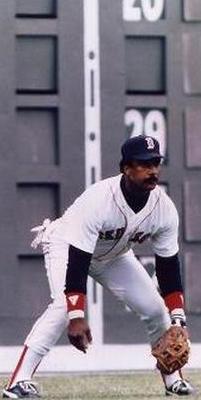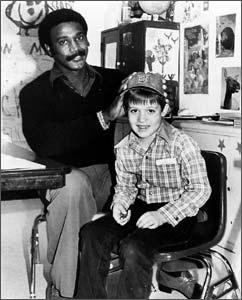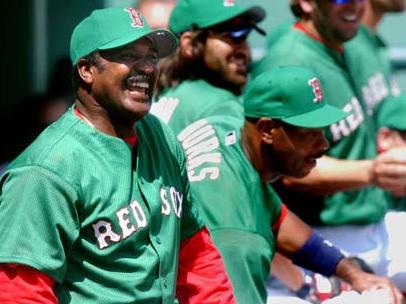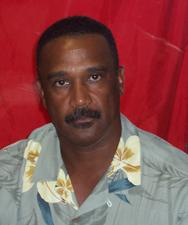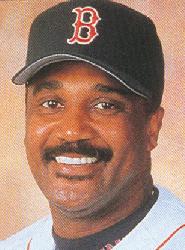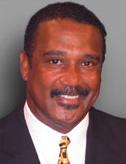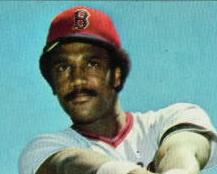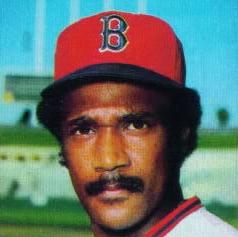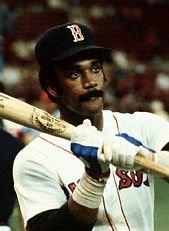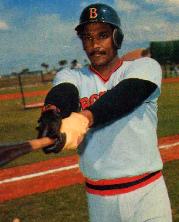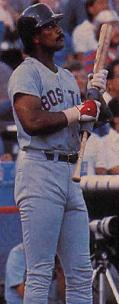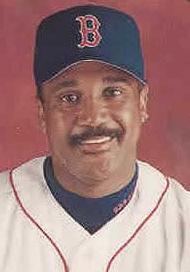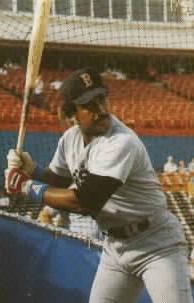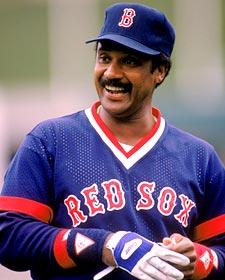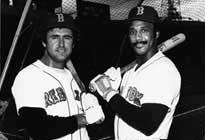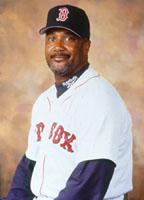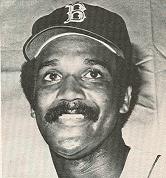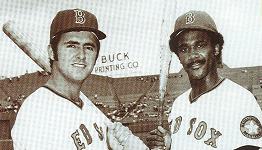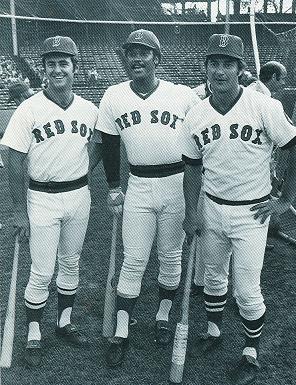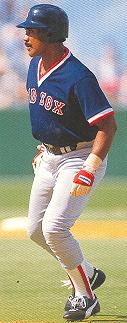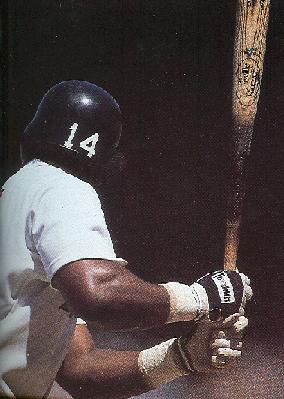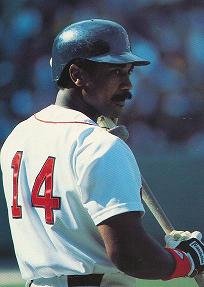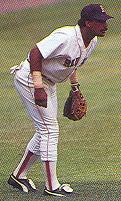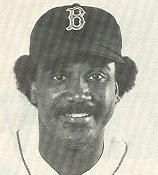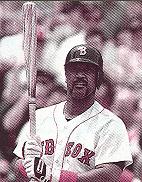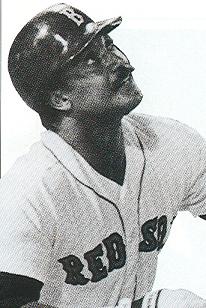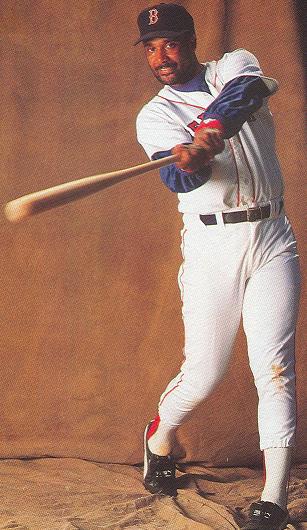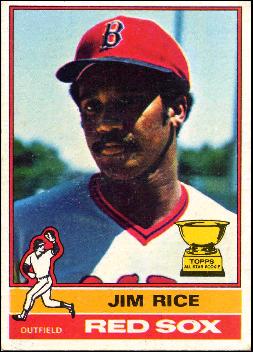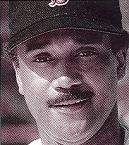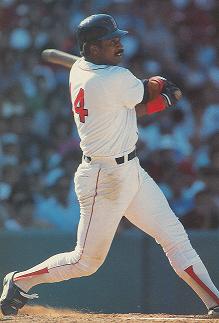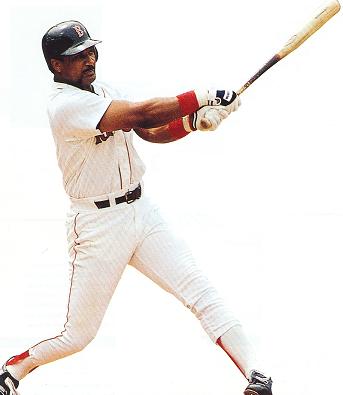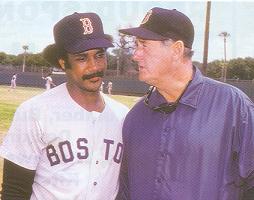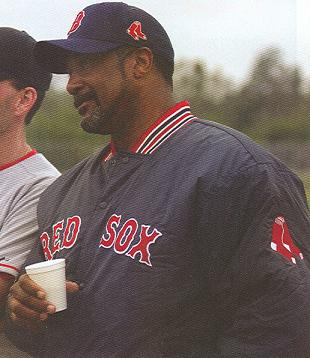Jim Rice
Biography
James Edward Rice was born on March 8, 1953 in Anderson, South Carolina. In high school, he excelled in track, football, basketball, and baseball. Though his childhood dream was to become a professional basketball player, baseball scouts saw his Major League potential. Red Sox scout Mace Brown noticed Rice during his junior year, and he made sure the Red Sox picked him up the next year. The Red Sox made Rice their first pick in the June 1971 amateur draft.
Rice moved through the minor leagues quickly. In 1973, he won the Eastern League batting title while playing for Bristol. The next year, while playing for Pawtucket, Rice captured the International League Triple Crown (.337, 25, & 95), MVP Award, and Rookie of the Year honors. He made his major league debut on August 19, 1974.
In 1975, Rice began to make his mark as one of Boston’s legendary left-fielders. He and Fred Lynn were rookie sensations, though Lynn would ultimately win the Rookie of the Year Award and MVP Award. Rice hit 22 home runs that year, driving in 102 runs and batting .309. On one of the final days of the season, Rice broke his hand after being hit by Tigers pitcher Verne Ruhle. Jim Rice would miss the entire 1975 postseason.
In 1978, Rice had a career year. He collected 406 total bases, becoming the first American League player to do so since Joe DiMaggio in 1937. Albert Belle had 399 in 1998, but no American League hitter has reached the milestone since Rice. Rice earned his first and only MVP Award in 1978. It was well-deserved; he hit 46 home runs, drove in 139 runs, collected 213 hits, scored 121 runs, and led the league with 15 triples. Bucky “Fucking” Dent kept Rice out of the playoffs that year.
In 1979, Rice’s success continued. Finishing the season with 39 homers and 201 hits, he became the first player to hit at least 35 home runs and collect 200 hits for three consecutive years. His production declined in the early 1980s, but he was able to pull himself together by the 1983 season. He had peaked again, hitting more than 30 home runs (39) and driving in more than 100 runs (126) for the first time since 1979.
Rice led his team to the World Series in 1986, batting .324, hitting 20 home runs, collecting 200 hits, and driving in 110 runs. After the Red Sox lost the World Series, Rice fell apart. Between 1987 and 1989 Rice hit 31 home runs and drove in 162 runs. His average dropped to .277 in 1987, .264 in 1988, and .234 in 1989. Joe Morgan seemed to embody the frustration of the Red Sox organization when he had Spike Owen pinch-hit for Rice during a game in 1989. Rice was visibly irritated and started shoving Morgan, which led to a suspension and ultimately an unceremonious release at the end of the season. He played his final game on August 3, 1989.
After he was released, Rice played for the St. Petersburg Pelicans in the Senior Professional Baseball Association (for players 35 and older).
Broken Bat on a Check Swing
In Bill Lee’s The Wrong Stuff, he claims to have seen Rice break his bat on a check swing in 1975. Rice didn’t even tip the ball; it was the violent torque of his swing that broke the bat. The Dee-Nee community would take this a step further, claiming that Rice regularly exercises his forearms while browsing through his massive porn collection.
Hall of Shame
He once went into the stands at Yankee Stadium to retrieve his hat after a fan took it from him.
GIDP
Rice was notorious for hitting into double plays. He led the league in GIDP between 1982 and 1985, setting the Major League record of 36 in 1984. The next year he hit into 35. He is also number six on the all-time list with 315, but played five fewer seasons than anyone else in the top ten. Rice was a slow runner and, like many right-handed Red Sox sluggers, tended to pull the ball in favor of the Green Monster in left field.
Red Sox batters are as notorious as Rice for hitting into double plays. In 1989, Rice contributed just 4 to the team’s 169 total. After they released Rice, the 1990 Red Sox set a Major League record by hitting into 174 double plays. Later in his career, Rice would try to hit exclusively to the opposite field.
Fielding
Though he never won a Gold Glove, Rice played in front of Fenway’s Green Monster for most of his career. He never made more than 9 errors in a season, and had a career high 21 outfield assists in 1983, second in the American League to Gary Ward’s 24. He was third in the American League in 1986 with 16, behind Blue Jays teammates George Bell and Jesse Barfield.
Minor Heroism and Philanthropy
On August 7, 1982 4-year-old Jonathan Keane was hit in the head by a Dave Stapleton line-drive. The ball fractured his skull, and the amount of blood coming from the child’s face stunned everyone. Rice bolted out of the dugout, picked up the boy, and quickly moved him into the team’s clubhouse so he could be treated. Jonathan recovered, and his father believes that Rice may have saved his son’s life that day.
Being Black in Boston
Boston’s Irish contingency does not historically mix well with African American populations, and the team didn’t even have black employees in 1954 and 1955. Ironically, Rice expressed a deep admiration for John F. Kennedy, who was Irish Catholic.
In 1959, Pumpsie Green broke the color barrier in Boston, making the Red Sox the final team to integrate their roster. Rice endured the infamous tenacity and racism of Red Sox fans during the 1970s and 1980s, and was actually one of the first great black Red Sox players. Reggie Smith and George Scott were the only black Red Sox sluggers before Rice came to the team, and the three have paved the way for such Sox legends as Mo Vaughn and David Ortiz.
Hall of Fame Struggle
One day...
Hobbies
Rice enjoys Golf, classic cars (especially from the 1950s and 1960s, and especially Corvettes), and his favorite actor is Clint Eastwood.
Coaching Career
Where Is He Now?
Jim Rice is currently a commentator for Red Sox games on the New England Sports Network (NESN).
NES
Jim Rice is the #4 hitter and starting left fielder for Boston on the NES version of RBI.
Career Statistics
| G | AB | H | 2B | 3B | HR | R | RBI | BB | SO | AVG | OBP | SLG | OPS |
| 2,089 | 8,225 | 2,452 | 373 | 79 | 382 | 1,249 | 1,451 | 670 | 1,423 | .298 | .352 | .502 | .854 |
| TB | SB | CS | IBB | HBP | GIDP | Errors | DP (Defensively) | Outfield Assists |
| 4,129 | 58 | 34 | 77 | 64 | 315 | 66 | 19 | 137 |
Awards, Honors, and League-Leading Totals
A.L. MVP (1978)
All-Star (1977-1980 & 1983-1986)
Silver Slugger (OF) (1983 & 1984)
Highest Slugging Pct. (1977 &1978)
Highest OPS (1978)
Most Hits (1978)
Most Total Bases (1977-1979 & 1983)
Most Triples (1978)
Most Home Runs (1977, 1978, & 1983)
Most RBI (1978 & 1983)
